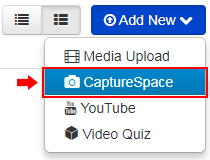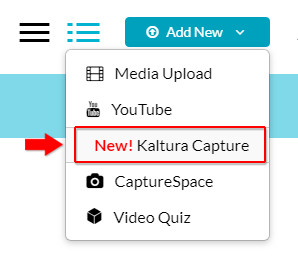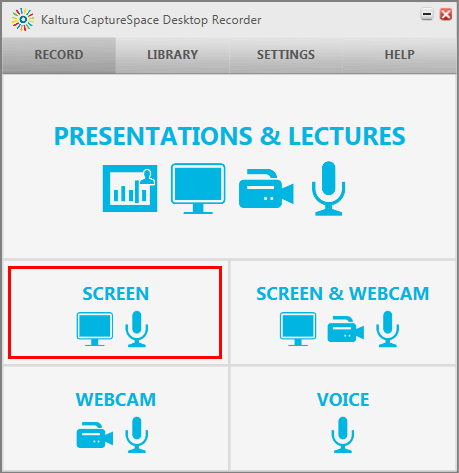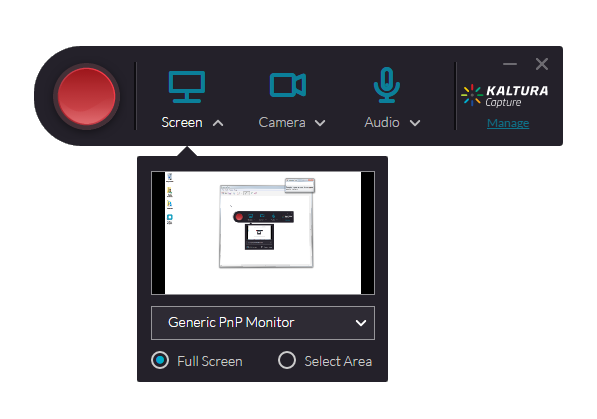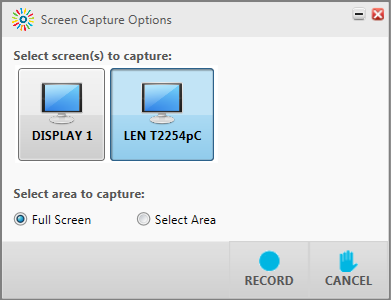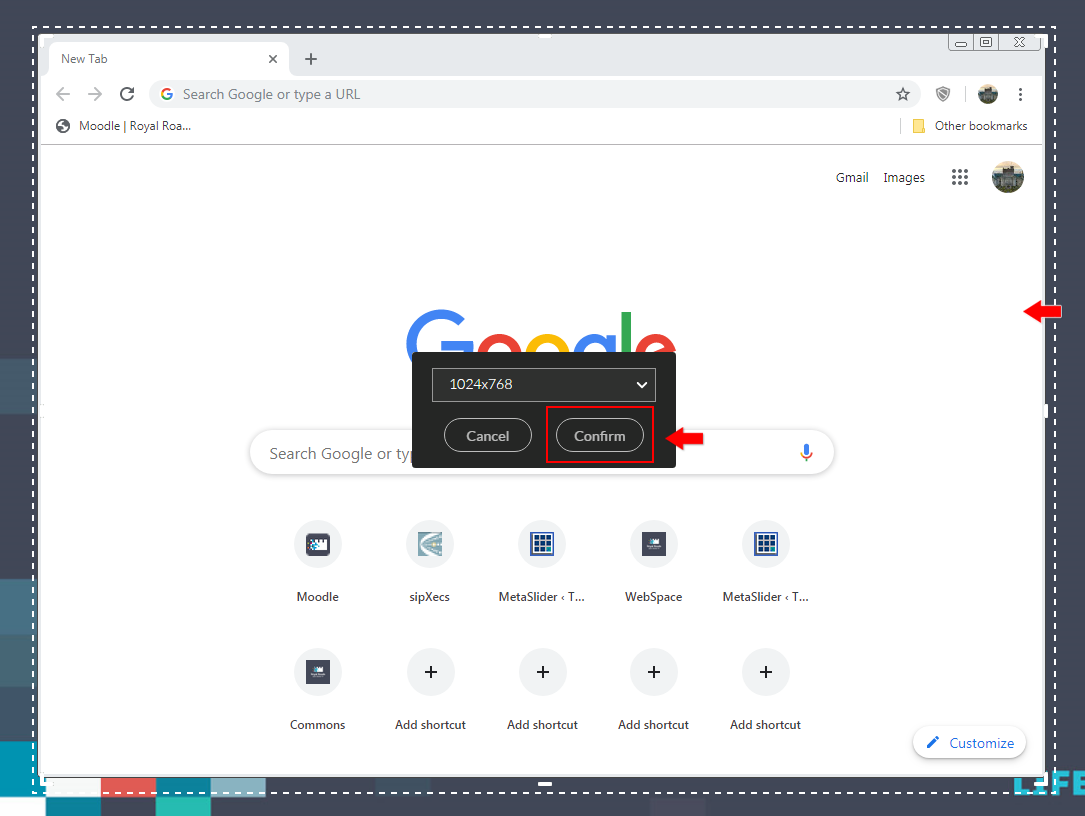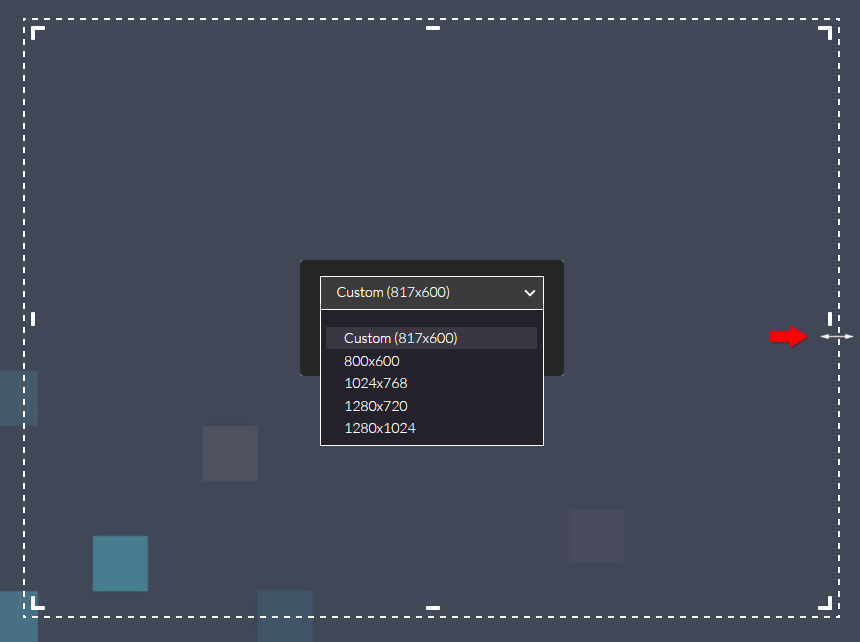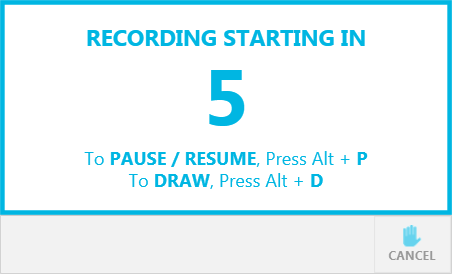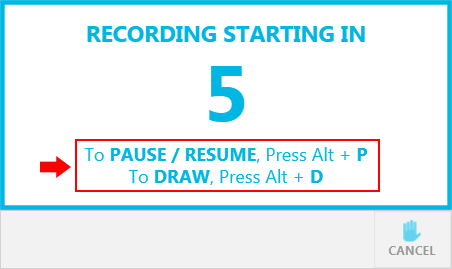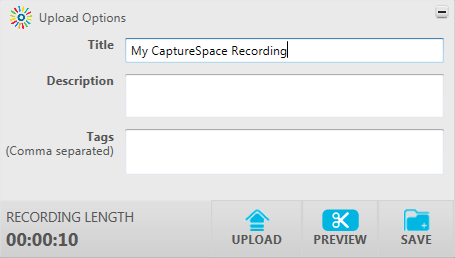...
...
...
...
Topics covered in this article
- Moodle My Media - How to create a screencast (using CaptureSpace)Introduction
- How to create a screencast
- How to embed video
- How to access the MP4 video filesMoodle My Media - How to create a screencast (using CaptureSpace)
- Troubleshooting
| Anchor | ||||
|---|---|---|---|---|
|
A screencast is a recording of what is on your computer screen, often containing audio narration. Another name for a screencast is video screen capture or screen recording. Screencasts are useful for how-to-guides, narrated demonstrations, course tours, tutorials, slideshows, etc.
You can record screencasts directly from your My Media page. To do this, you will need to install the My Media application called CaptureSpace Kaltura Capture. Once you have made your recording, you can upload to your My Media library and embed it anywhere the Moodle text editor is available.
To learn how to make a screencast,
...
read step-by-step instructions
...
below
...
.
...
...
| Anchor | ||||
|---|---|---|---|---|
|
1.
...
Open Kaltura Capture
From Moodle, click on the User menu in the top right and click My Media.
...
- From the My Media window, click on Add New and then CaptureSpaceKaltura Capture.
- If you’ve already installed CaptureSpaceKaltura Capture, it will launch automatically. Otherwise, please refer to Moodle My Media - Installing CaptureSpaceKaltura Capture.
2. Select SCREEN in the
...
Kaltura Capture recorder
- The CaptureSpace Kaltura Capture Desktop recorder (pictured below) will open. With the CaptureSpace Kaltura Capture Desktop Recorder window open, select Screen to record a screencast. If you would like to include your webcam in the corner of your recording you may select Screen & select Webcam.
- If you have multiple screens and you only want to record one, simply click the Blue screen icon and it will become grey to show it has been disabled. For an overview of the recording options, please go to How to select the recording options (using Kaltura Capture).
3. Click RED RECORD CIRCLE to start recording
- You may need to select which screen to record from and whether to record full screen or a selected area of one screen. If If you've selected Full Screen click the Record button.
- If you've selected Select Area click the Select Area button, which will prompt you to click and drag the rectangle of the screen that will be recorded.
A fiveselect a window size for recording.
- Choose on of the following size options from the drop down menu (it will be easier if you choose one of the predefined sizes) and click Confirm.
- Open the browser window or application that you will be recording.
- Drag your browser window or application window into the dashed lines of the recording window area.
- Resize the browser window or application so it fits inside the recording area. This will be easier than dragging the dashed lines of the recording window out. Also, using one of the listed sizes makes it easier to re-record, you don't have to drag out the custom size again.
- Click Confirm when ready.
- If you want to resize the recording window to make a custom size, hover over the dashed lines and when an arrow shows up, click and drag to resize.
- Click Confirm and press the Start Recording button.
- A three-second countdown timer will indicate when recording will begin. To ensure that nothing is cut off from the beginning, it is a good idea to wait an extra second before you begin speaking.
- You may pause and resume the recording by pressing Alt + PCOMMAND or CTRL+SHIFT+R.
- You may also draw on your screen by using Alt + D, and this the annotation tools. Click on the pencil icon to open options. The drawing will appear in the recorded video.
4. Click
...
STOP RECORDING SQUARE to finish recording
- It's recommended that you pause your video with Alt + P COMMAND or CTRL+SHIFT+R and then stop it to avoid the screen capture controls from appearing in the video.
- Use the Recording Screen Capture controls to stop your video. If you know you want to delete your recording and start again you may click Cancel. Click Done to can also click X to cancel.
- Click the square to stop the recording and select Yes, Stop it to move on to reviewing and saving your video.
- If you'd like to edit your CaptureSpace recording please refer to Moodle My Media - How to edit media recordings ( CaptureSpaceKaltura Capture).
- If you do not wish to edit your recording, click Done.
...
5. Name & save your recording
- Give your recording a title in the Title field.
- Optionally, you may add a description and tags.
- Clicking SAVE & UPLOAD will upload the recording to My Media and save it in the CaptureSpace Kaltura Capture library.
- Clicking PREVIEW will take you back to the editing window.Clicking SAVE will save it in the CaptureSpace Kaltura Capture library where you can upload it to My Media later.
...
- Important Note: DELETE will remove it from your computer. It will not go into your Recycle Bin and can't be retrieved. Make sure you have either uploaded it into My Media or you would like it to be deleted. Deleting it from My Media will also remove it and can't be retrieved.
- After uploading the recording to My Media, if you don't see the recording in your My Media library right away, try clicking the refresh button:
| Anchor | ||||
|---|---|---|---|---|
|
To embed a video in Moodle, please see Moodle My Media - How to upload and share video & audio
| Anchor | ||||
|---|---|---|---|---|
|
- You can access the local MP4 video recording files, and here's how:
- Open CaptureSpace and click on the Settings tab. Copy the location of the 'Local Media Files Storage' and paste it into the Windows Explorer address bar. From there you'll need to find the correct sub folder with the MP4 file you're looking for.
...
To download a video in Moodle, please see Moodle MyMedia - How to download your video.
Anchor Troubleshooting Troubleshooting
Troubleshooting
| Troubleshooting | |
| Troubleshooting |
For information on troubleshooting, please
...
see Moodle
...
MyMedia - Troubleshooting Kaltura Capture.
